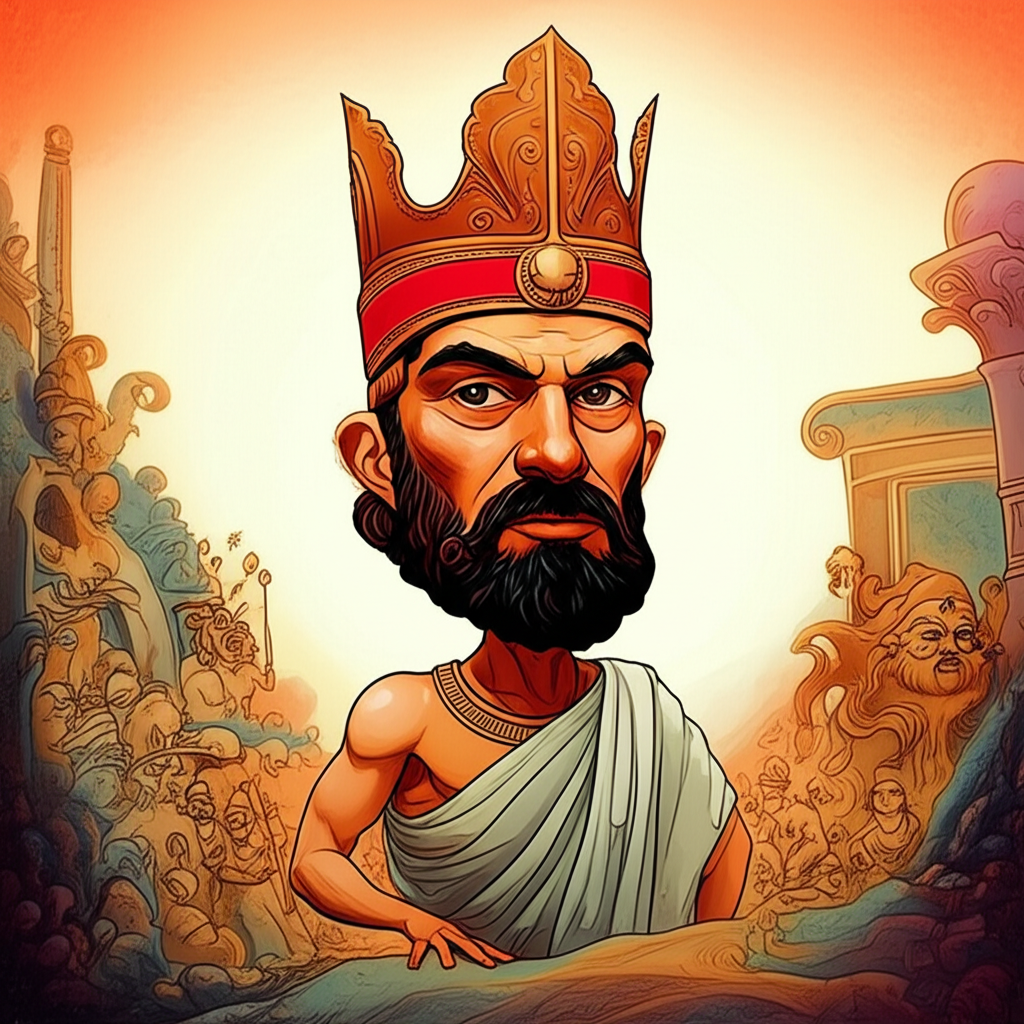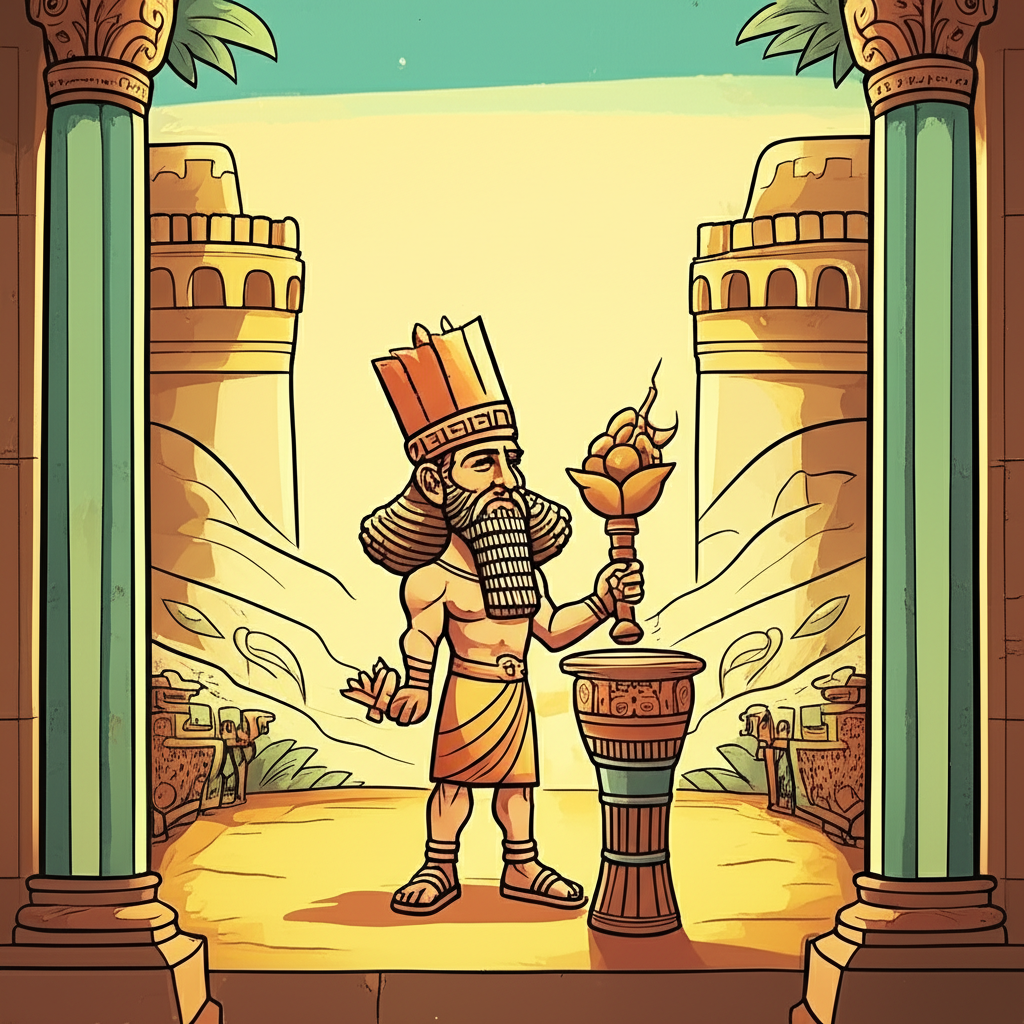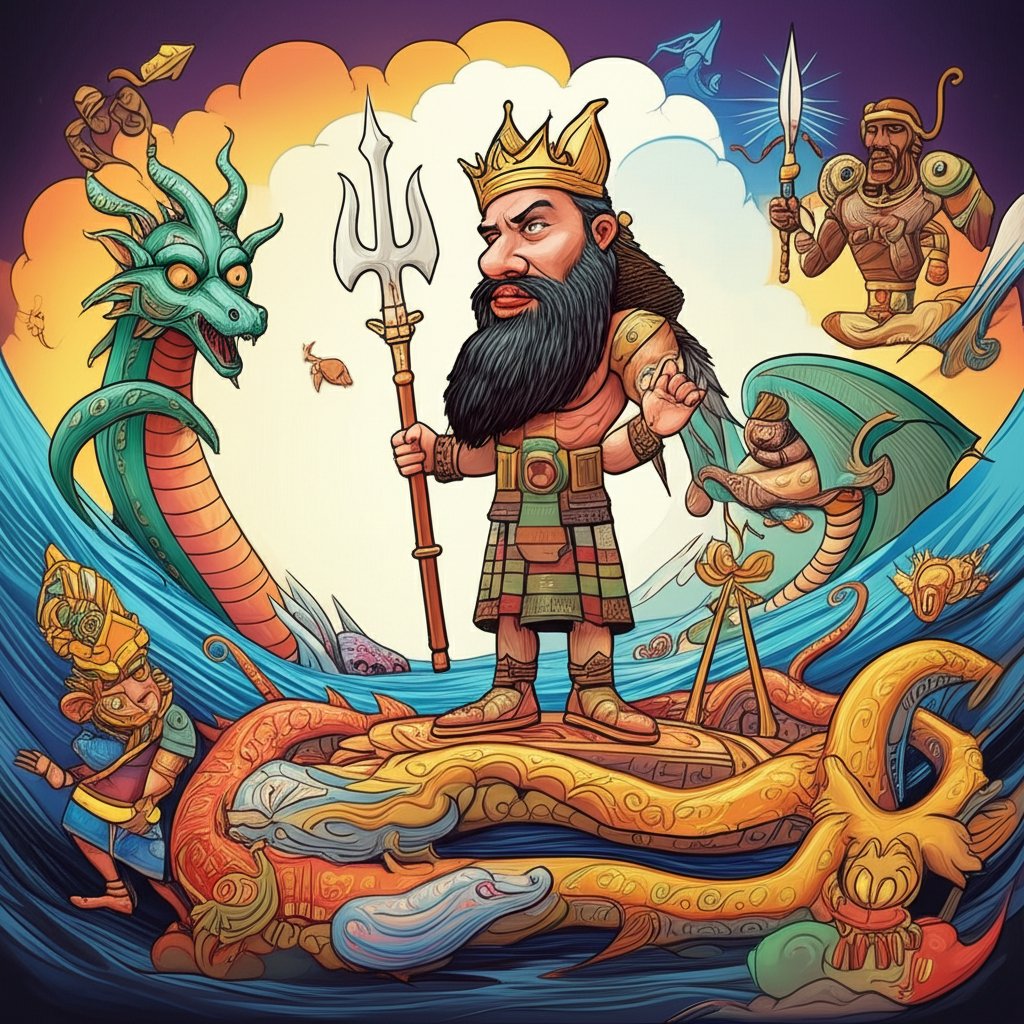
1. Introduction
The story of Gilgamesh, a figure of immense strength and ambition, is one of humanity’s oldest surviving literary works, originating from the fertile crescent of ancient Mesopotamia. This foundational epic, etched onto clay tablets in cuneiform script, is a traditional narrative told by the Sumerian and Babylonian peoples, offering a profound glimpse into their understanding of the world, their gods, and the human condition. It is a powerful legend, not a factual account or a basis for belief, but a testament to the storytelling prowess of an ancient civilization, preserved for cultural, historical, and educational understanding. Within this grand narrative, the figure of An, the supreme sky god, plays a pivotal role, particularly during the "Trial of the Bull of Heaven," a dramatic confrontation that profoundly shapes Gilgamesh’s journey.
2. Origins and Cultural Background
The Epic of Gilgamesh emerged from the cradle of civilization, a region now largely corresponding to modern-day Iraq, during the Bronze Age. This was an era of burgeoning city-states, monumental architecture, and the development of writing. Societies like Sumer and Akkad were highly structured, with kingship often seen as divinely ordained, bridging the gap between mortals and the powerful, often capricious, deities. The people of this time viewed the world as a complex tapestry woven by a multitude of gods and goddesses, each governing different aspects of nature, human endeavor, and destiny. Natural phenomena—floods, droughts, plagues—were often interpreted as expressions of divine will or displeasure. Life was precarious, and the quest for meaning, permanence, and a legacy beyond mortality was a recurring theme, reflected in the epic’s exploration of heroism, friendship, and the inevitable reality of death. The cosmos was alive with divine presences, and humanity’s fate was often at the mercy of their often-conflicting desires and decrees.
3. Character Description: An
Within this rich mythological landscape, An (or Anu in Akkadian) stood as the preeminent deity, the Sumerian god of the heavens, the ultimate sky god, and the venerable father of the gods. He was revered as the source of all divine authority, the distant yet supremely powerful patriarch of the Mesopotamian pantheon. Symbolically, An represented the cosmic order, the vast expanse of the sky, and the ultimate arbiter of fate. His dwelling was in the highest heavens, and his power was considered immense, though he often remained somewhat aloof, leaving direct intervention to younger, more active deities. He was not a god to be worshipped in the modern sense, nor do we present him as a real entity, but within the myth, he embodied the very principle of divine sovereignty and the ultimate source of judgment. His decisions, though sometimes influenced by other gods, carried the weight of cosmic law.
4. Main Story: An and the Trial of the Epic of Gilgamesh
The narrative of Gilgamesh, the powerful and initially tyrannical king of Uruk, details his transformation from a harsh ruler to a wise hero, largely through his friendship with the wild man, Enkidu. Together, they embark on grand adventures, slaying the monstrous Humbaba, guardian of the Cedar Forest, and establishing their legendary status. It is after these initial triumphs that the divine realm directly intervenes in their lives, particularly through the goddess Ishtar, the goddess of love, war, and fertility.
Having witnessed Gilgamesh’s valor and strength, Ishtar, enamored, proposed marriage to him. However, Gilgamesh, known for his sharp wit and burgeoning wisdom, scornfully rejected her advances. He listed her many past lovers, from gods to mortals, detailing the unfortunate fates they had met once Ishtar had grown tired of them. His words were cutting, laced with a defiance that was both courageous and deeply insulting to a powerful deity.
Enraged by this public humiliation, Ishtar ascended to the heavens, her fury a storm brewing within her. She went directly to her father, An, the supreme sky god, to demand retribution. Weeping and threatening, she begged An to unleash the terrifying Bull of Heaven upon Uruk, to devastate the city and punish Gilgamesh for his insolence.
An, ever the embodiment of cosmic wisdom and foresight, initially resisted his daughter’s furious demands. He questioned her judgment, warning her of the dire consequences of such an act. He explained that unleashing the Bull of Heaven would bring seven years of famine upon Uruk, a catastrophe that would plunge the city into starvation and despair. He foresaw the suffering of the innocent and tried to dissuade Ishtar from her wrathful course.
But Ishtar, consumed by her pride and desire for vengeance, would not be swayed. She issued a dire threat: if An did not grant her wish, she would smash the gates of the Underworld, allowing the dead to rise and outnumber the living, turning the world upside down. Faced with this terrifying ultimatum, and recognizing the immense destructive power Ishtar wielded even in her frustration, An, with a heavy heart, reluctantly conceded. The cosmic order, though maintained by his authority, was often swayed by the volatile passions of the younger gods. He released the Bull of Heaven, a creature of immense power and divine wrath, to descend upon Uruk.
The Bull of Heaven descended to Uruk like a terrifying storm, its bellow shaking the very foundations of the city. With each snort, it created enormous chasms in the earth, swallowing hundreds of Uruk’s warriors. Its very breath was a scorching wind, its charge an unstoppable force of destruction. Panic and devastation spread throughout the city.
However, Gilgamesh and Enkidu, fueled by their heroic spirit and unbreakable bond, confronted the monstrous beast. They fought with incredible bravery and coordinated skill. Enkidu, agile and strong, grappled with the Bull, holding it firm, while Gilgamesh, with his mighty sword, delivered a fatal blow to its neck. Together, they slew the divine beast, tearing out its heart (or thigh, in some versions) as an offering, a defiant act that further enraged Ishtar. She cursed them from the city walls, but their triumph was complete.
Yet, this victory came at a terrible cost. The gods, assembled in council, decreed that one of the heroes must die for the slaying of the Bull of Heaven and Humbaba, and for the disrespect shown to Ishtar. Enkidu, having been crafted by the gods, was chosen. He fell ill, suffering a prolonged and agonizing death, a tragic retribution that plunged Gilgamesh into profound grief and sparked his desperate, ultimately futile, quest for immortality.
5. Symbolism and Meaning
To the ancient Mesopotamian people, the episode of An and the Bull of Heaven was rich with symbolism. An, as the reluctant giver of the Bull, represented the ultimate, often distant, divine authority, the source of both cosmic order and the potential for divine wrath. His initial hesitation and eventual concession highlighted the complex dynamics within the pantheon and the potential for even the highest authority to be swayed by lesser, though powerful, deities. The Bull of Heaven itself was a potent symbol of divine retribution, natural disaster, and the raw, destructive power of the gods. Its rampage through Uruk mirrored the devastating floods and famines that could plague ancient agricultural societies, reminding people of their vulnerability to forces beyond their control. Gilgamesh’s defiance of Ishtar and the subsequent slaying of the Bull symbolized human hubris, the challenging of divine power, and the inevitable, often tragic, consequences of such actions. It underscored the ancient belief that while humans could achieve great feats, they ultimately remained mortal, subject to the will and judgment of the gods. The death of Enkidu served as a stark reminder of human mortality and the limits of even the greatest heroism in the face of divine decree.
6. Modern Perspective
Today, the Epic of Gilgamesh continues to captivate scholars, writers, and artists across the globe. In literature and academia, it is revered as a seminal text, offering invaluable insights into early human civilization, mythology, and the development of epic poetry. Its themes of friendship, loss, the search for meaning, and the confrontation with death resonate universally. Modern interpretations often explore the psychological dimensions of Gilgamesh’s journey, his struggles with power, grief, and the acceptance of mortality. The story has permeated popular culture, inspiring elements in fantasy novels, video games (where characters like Gilgamesh, Enkidu, and even the Bull of Heaven appear in various forms), and cinematic adaptations. It serves as a reminder of the enduring power of storytelling and humanity’s age-old quest to understand its place in the cosmos, even when that cosmos was imagined as being governed by a pantheon of powerful, often unpredictable, deities.
7. Conclusion
The tale of An and the Bull of Heaven within the Epic of Gilgamesh is a magnificent cultural artifact, a traditional story passed down through millennia. It is a product of ancient human imagination, a narrative that sought to explain the world, human nature, and the relationship between mortals and the powerful forces they perceived as divine. As Muslims, we recognize that these ancient stories, while culturally and historically significant, are not to be believed, worshipped, or practiced. We acknowledge that only Allah is the true Creator and Sustainer of the universe, the One and Only God, distinct from any mythological pantheon. These narratives, therefore, serve as profound insights into the rich tapestry of human cultural heritage, demonstrating the universal human impulse to create meaning, explore existential questions, and weave elaborate tales that reflect their deepest fears, hopes, and understandings of the world. They stand as a testament to the enduring power of imagination and the timeless tradition of storytelling.




